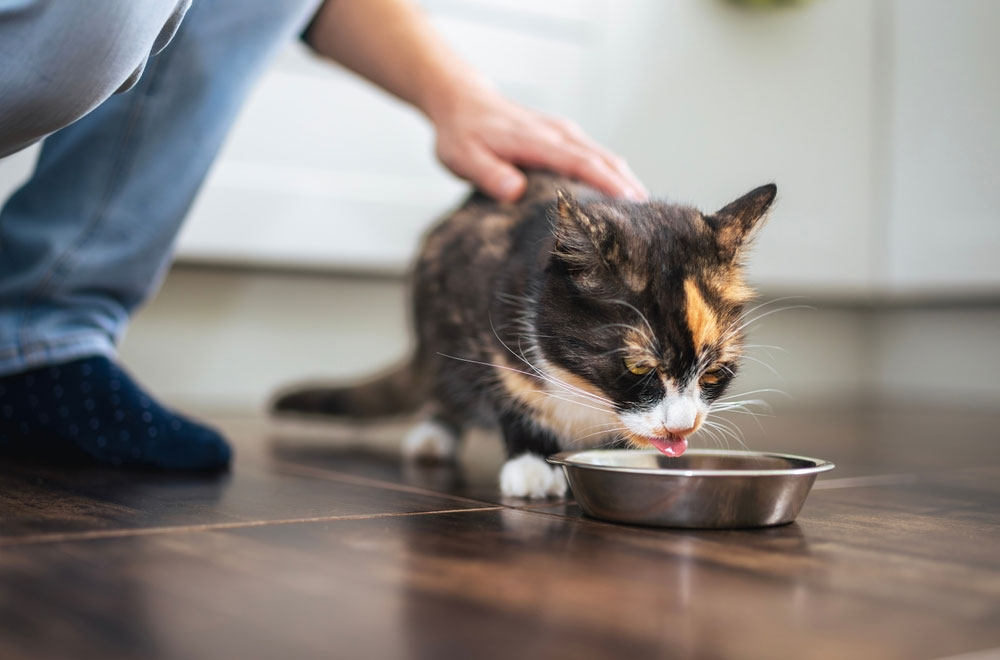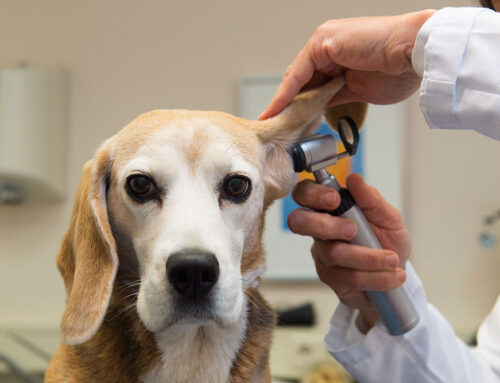Nutrition plays a vital role in your pet’s overall health, from their energy levels to their lifespan. Whether you’re raising a playful puppy, caring for a senior cat, or managing a pet with special dietary needs, the right nutrition plan can make all the difference. At Animal Hospital at Hillshore in Madison, WI, we’re here to simplify the process and help you make informed choices. This comprehensive guide breaks down the essential aspects of pet nutrition, ensuring your furry companion stays healthy and happy.
The Role of Nutrition in Your Pet’s Health and Longevity
A proper diet affects more than just weight—it supports immune function, keeps the coat shiny, and even influences behavior. Poor nutrition, on the other hand, can lead to a host of preventable issues, such as:
- Obesity: Linked to arthritis, diabetes, and heart disease.
- Digestive Problems: Like diarrhea or constipation caused by imbalanced diets.
- Skin Conditions: Dull fur, dandruff, and excessive shedding are often signs of deficiencies.
Regular wellness exams can help detect these issues early, giving you the opportunity to adjust your pet’s diet and improve their quality of life.
Assessing Your Pet’s Unique Nutritional Needs
Every pet is unique, and their diet should reflect that. Here are some factors to consider:
Life Stages: Puppies, Adults, and Seniors
Each life stage comes with different nutritional demands:
- Puppies and Kittens: These bundles of energy need high-calorie, nutrient-dense diets rich in protein and essential fats. Look for labels that say “growth” or “all life stages.”
- Adult Pets: Maintenance diets provide the balanced nutrients adult dogs and cats need without overloading them with unnecessary calories.
- Senior Pets: Aging pets often require fewer calories but more joint-supporting nutrients like glucosamine and chondroitin.
Did you know? Cats are obligate carnivores, meaning their diets must include animal-based proteins to avoid deficiencies in taurine and other vital nutrients. Dogs, by contrast, are omnivores and can thrive on a wider range of foods.
Breed and Size
Larger dog breeds like Labradors or Great Danes may benefit from diets that support joint health, such as those containing omega-3 fatty acids and glucosamine. Smaller breeds may need calorie-dense kibble to match their high metabolisms.
Activity Levels
Active pets, such as working dogs or cats that spend time outdoors, require more calories to fuel their daily adventures. Conversely, less active pets or those with limited mobility may need fewer calories to avoid unnecessary weight gain.
Special Needs
Some pets have unique requirements due to medical conditions or sensitivities. For example:
- Pets with Allergies: Limited-ingredient diets can help manage food sensitivities.
- Diabetic Pets: Require low-glycemic diets to stabilize blood sugar levels.
- Overweight Pets: Benefit from reduced-calorie foods and increased exercise.
Key Nutritional Components Every Pet Needs
A balanced diet includes six essential nutrients. Here’s a closer look at what each provides:
- Protein: Essential for muscle repair, growth, and energy. Meat, fish, and eggs are excellent sources.
- Fats: Provide energy and support brain and coat health. Look for healthy sources like fish oil or chicken fat.
- Carbohydrates: While not essential for all pets, carbs can be a good energy source for active dogs.
- Vitamins and Minerals: These micronutrients are critical for immunity, bone health, and overall well-being.
- Fiber: Supports digestive health and prevents constipation.
- Water: The most overlooked nutrient—ensure your pet always has access to fresh water.
Choosing the Right Type of Food
Pet foods generally fall into three categories:
- Commercial Diets: Convenient and nutritionally balanced. Look for those labeled “complete and balanced” by AAFCO.
- Homemade Diets: These allow for customization but require guidance from a veterinarian to avoid deficiencies.
- Prescription Diets: Designed for pets with medical conditions, such as kidney disease or allergies.
Tip: Use the Pet Nutrition Alliance Calorie Calculator to estimate your pet’s daily caloric needs based on their weight and activity level.
Avoiding Common Pitfalls in Pet Nutrition
Even the most attentive pet owners can make mistakes when managing their pet’s diet. Here are some to avoid:
Overfeeding and Treat Overload
It’s easy to underestimate how quickly treats add up. Even small snacks can contribute to weight gain if not accounted for in your pet’s daily calorie allowance.
- Stick to treats that make up no more than 10% of your pet’s daily calories.
- Use veggies like carrots or green beans as low-calorie treat alternatives.
Toxic Foods
Many common human foods are toxic to pets. These include:
- Chocolate
- Grapes and raisins
- Onions and garlic
- Xylitol (found in sugar-free products)
Falling for Diet Trends
Grain-free diets, for example, are not always necessary and may even pose risks for certain pets. Always consult with your veterinarian before trying new trends.
Monitoring and Adjusting Your Pet’s Diet

Pet nutrition isn’t static. As your pet grows, their needs will change. Here’s how to ensure their diet evolves with them:
- Regular Weigh-Ins: A sudden change in weight could indicate dietary issues or underlying health concerns.
- Routine Vet Visits: Our diagnostics services can identify issues arising from nutrient deficiencies or conditions requiring dietary adjustments.
- Behavioral Clues: A dull coat, reduced energy, or unusual stool consistency may signal the need for a new diet.
Special Diets for Specific Conditions
For pets with health challenges, diet is often a critical part of their treatment plan:
- Weight Management: Reduced-calorie diets combined with portion control and increased exercise.
- Renal Disease: Diets low in phosphorus and protein help protect kidney function.
- Joint Issues: Foods enriched with omega-3 fatty acids and glucosamine support mobility.
Our veterinarians work with pet owners to develop customized diet plans tailored to each pet’s needs.
How Animal Hospital at Hillshore Can Help
Choosing the right nutrition plan doesn’t have to be overwhelming. At Animal Hospital at Hillshore, we’re here to make it simple. Here’s how we support you:
- Tailored Nutrition Plans: Based on your pet’s life stage, breed, and activity level.
- Routine Monitoring: During wellness visits, we evaluate your pet’s dietary needs and recommend adjustments.
- Expert Guidance: Whether you’re navigating food allergies or managing a senior pet’s changing needs, we’re here to help.
Your pet deserves the best, and we’re here to ensure they get it. Contact us today to schedule a consultation and take the first step toward a healthier, happier pet.






Leave A Comment